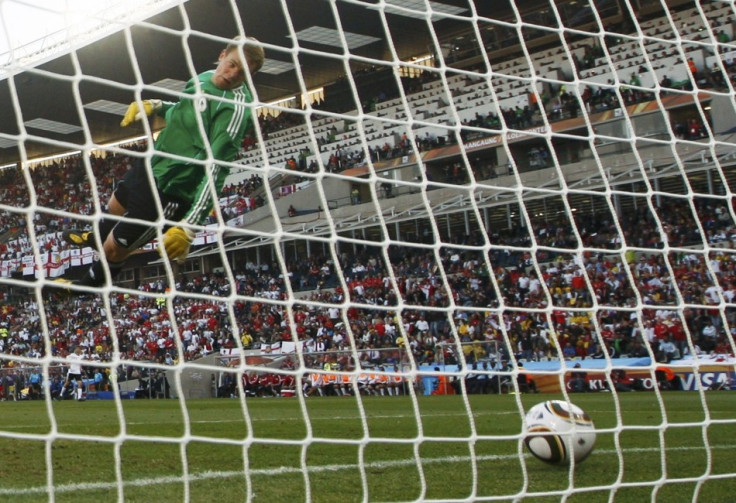FIFA Blocks Arsenal Goal-Line Technology But Promises Review Before 2014 World Cup

- Click here for a full review of today's football transfer rumours
If goal-line technology was in place in South Africa last year, England would have won the World Cup. Ok, probably not but at least we would have been prevented the tedious debate about the merits, or lack thereof, of introducing a system that is already widely used in other sports, including cricket and rugby.
Supporters of the technology point to injustices like this, this, and most satisfyingly this, in the perpetual debate about the technology's introduction.
Now FIFA, the sport's world governing body, has revealed it will test the nine leading candidates to determine which - if any - could be used in the 2014 Brazil World Cup, according to the Associated Press.
But the candidates - which have not been named but are all based in Europe - will be subject to a series of exacting tests. The successful system requires the referee to be notified within a second if a goal has been scored and must be 100 per cent accurate. No mean feat considering that rugby and cricket - the two sports who have most successfully integrated video technology - can't guarantee such precise results.
Cricket and tennis have both successfully integrated Hawk-Eye, which relies on six high-speed cameras that track the ball's flightpath. But the system takes around 10 seconds to calculate the ball's path and is unlikely to curry favour with media broadcasters. A second approach is to implant a microchip in the ball which "senses a magnetic field as it crosses the goal line," sending a signal to the referee.
Nine systems were previously tested at FIFA headquarters in March, but their accuracy was unacceptable.
Emirates Cup
FIFA have prevented Arsenal from testing goal-line technology at this weekend's Emirates Cup, as the world governing body seeks a universal standard ahead of the 2014 World Cup.
'You need permission to use it and we didn't get it,' said Arsene Wenger.
'I think they do not want to start to have a different set of rules here and there and I understand that.
'The good news is they are open to it and it looks like in the next World Cup we will have it.'
© Copyright IBTimes 2024. All rights reserved.





